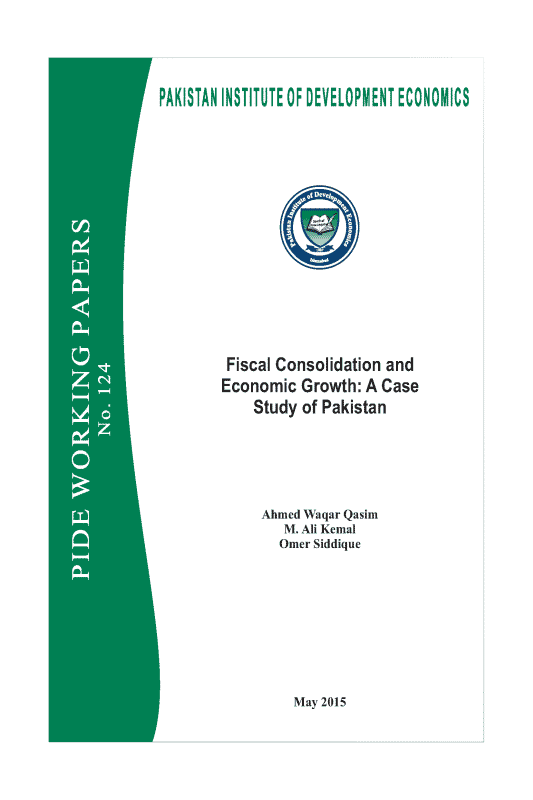Fiscal Consolidation and Economic Growth: A Case Study of Pakistan
Pakistan’s economy has witnessed occasional spurts in economic growth, unfortunately, the economic growth has not been sustainable. One of the culprits often cited for haphazard growth experience of Pakistan is fiscal imprudence. In this paper we have analysed the impact of fiscal consolidation on growth. By taking annual data from 1976–2014 we checked the association of components of fiscal policy with growth. It is concluded that budget deficit has non-linear association with growth. Moreover, interest payments have negative correlation with growth therefore, it is extremely important to curtail both the interest payments as well as primary deficit. Current tax structure is not growth enhancing therefore structure of tax needs reforms in such a way that it helps the growth process as well as maintain equity. Development expenditures needs to be increased with a curtailment in current expenditures to boost growth.




